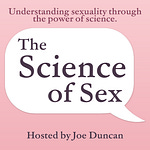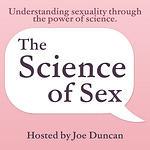ICYMI: Here’s a post from April about pornography’s effects on people and the massive anti-porn propaganda network masquerading as science, filling the internet with baseless lies or distorted claims.
Before the piece from April, I’m going to discuss this a bit further so people can understand my perspective a bit better. My criticisms of the anti-porn movement don’t mean I’m pro-porn industry.
In today’s world, people, especially activists, demand you take a black-and-white view of every subject. It’s part of the group mentality that dominates the social media space, including Google and YouTube. If you’re not sufficiently with a certain group that’s against another group, you represent a threat to that group’s cohesion when that group is operating under group-think principles.
One problem is that reality is never black and white.
Another problem is that disliking someone doesn’t give me a pass to do whatever I want.
I might strongly disagree with something someone does. But that doesn’t mean I believe we should lie about what that person does wrong in order to make them look worse.
This is exactly what’s happening with the porn discussion. On the one hand, let’s face it, a lot of porn is kinda gross for a lot of people. It’s terrible that some people feel like they have to compete with porn for attention. Worst of all, I’m bothered by the unashamed and cartoonish commodification of sexuality and attraction.
But that doesn’t mean I’m going to automatically believe every lie piled up in front of me that goes against the porn industry. That’s not what honesty is all about.
Honesty is about checking your personal biases at the door the best you can.
It’s also crucial that whenever we talk about sex, we separate genuine moral harm (ie, child predation, sex trafficking rings, etc.) from the “ick” factor that too often accompanies sexual things.
We must ask ourselves, “Who’s being hurt by this activity?” If you think someone is, but they themselves don’t know it, and that person isn’t a child or being threatened by another person somehow, it’s really tough to justify that belief.
The trouble is some groups exist strictly to manufacture moral transgressions about certain groups and individuals because they have an “ick” factor against that group.
You see this happen with racial and sexual minorities all the time.
A racist person might use the N-word, or they might present “facts” from dubious information sources that were carefully selected to make the target race look bad.
The intent is the same.
Here’s the thing. I don’t believe that religions that have spent literally centuries punishing sex, sometimes legally, oftentimes with the death penalty, should have anything to say whatsoever about sexual health.
The following piece took me months to research, day in and day out. I didn’t find a single anti-porn organization that I couldn’t trace back to the Church (big name, big budget churches, not your local pastor).
There wasn’t a single bit of “research” claims that weren’t easily debunked in a few hours of research or claims that were wholly manufactured (lies) by the (mostly Mormon) Church because they understand that sexual liberty threatens their belief systems’ very existence.
Big Porn and Big Church are having a very public feud.
When asked to pick a side, I refuse. I vote neither (though I can’t prove that porn is actually harmful—the Church has been obviously very harmful for centuries).
Anyways, here’s the piece. I hope you read on with all of this in mind.
Porn is a touchy subject.
On one hand, people love it. It feels like it’s everywhere. Porn companies rake in billions more than some of our largest corporations (household names, might I add). PornHub is only a click away, and our porn viewing habits are something we talk about openly. Our sexuality has never been freer.
On the other hand, many people feel discomfort or shame when pornography enters the picture. And if you don’t like porn, you don’t like porn, the ease of access can feel suffocating. It can feel like you’re forced to measure up to performers who go to extreme lengths to create the final product.
On top of this, porn is a habit we carry into new relationships with us. One partner may find porn perfectly acceptable, while the other partner considers porn an uninvited guest.
How porn affects our sex lives depends on the person in question.
But what does science have to say about all of this?
The Pornography Epidemic?
First, let’s tackle the elephant in the living room.
Numerous sites exist solely to scare you into believing there’s a porn epidemic. All of these sites try to sell you something or get you to pay them money, so they can “cure” the porn problem.
We’re in the middle of a “sex panic,” where aggressive institutions attempt to convince the public that sex is bad in hopes they’ll adopt conservative social views. They claim that pornography is rampant.
Make no mistake: these are conservative and religious organizations masquerading as unbiased academics.
CovenantEyes doesn’t hide its religious undertones--it’s right there in the name. The very popular site Fight the New Drug is more covert, pretending to be an unbiased site trying to give you the facts.
But they’re really a non-profit based in Utah with deep, ambiguous connections to the Mormon Church. The group’s founders claim to be acting out of sincere concern for public well-being, but the group’s leadership has consistently fought to repeal anti-LGBTQ legislation.
The leaders of these organizations (not the organizations themselves) aren’t just anti-porn, they’re anti-sex…or, at least, they’re against any kind of sex that isn’t religious and for procreation. Not exactly the epitome of intellectual rigor.
All the big names hail from Utah and have ties with the Church of Latter-Day Saints.
Internal literature from the church proves that its mission is moral, not scientific.
They don't hide being propagandists.
One woman frequently featured on Fight the New Drug even went as far as to say that women who watch porn are increasing their likelihood of being raped (the article below explains in detail).
A lot of people don’t realize that the organizations driving a lot of the anti-porn disinformation aren’t harmless and unbiased non-profits but Think Tanks steeped in religious zealotry and social conservatism.
One site claims that 30% of the internet is porn. They also claim that porn sites enjoy more daily users than Amazon, Netflix, and Twitter combined. They also say that 88% of porn is violence against women.
Science tells a very different story.
First off, the 30% number is totally bunk. This has been disproven time and again.
An excellent book called A Billion Wicked Thoughts: What the Internet Tells Us About Sexual Relationships dove headfirst into the labyrinthine questions that relatively new technologies like internet porn have manifested. In 2012, researchers scanned billions of data points to find out what makes us tick when we think no one’s looking--when we’re searching for internet porn.
The study found that only 4% of websites are pornographic, contrary to the 30% claim.
Furthermore, very few web searches are for porn. Considering that one user could conduct hundreds or thousands of different pornographic searches, all fetching roughly the same sites, we can expect the number of total searches to be higher than the number of sites catering to those searches.
13% of web searchers from the browser and 20% of mobile searches are for porn.
This chart from Statista shows the prevalence of porn online, confirming that research.
In the 1990s, a substantial percentage of internet searches were for porn (up to 40% in 1999). That’s not because we’re porn-hungry, but because so few people had internet access and those who didn’t have many choices.
YouTube didn’t exist. Social media didn’t exist. Even sites like eBay and Amazon were in their infancy. You could look up stock prices, news, porn, and not too much else.
Since those sites became popular, the percentage of porn searches sank to between 4% and 10% in the 2000s. Twenty years ago.
We have tools like Google Trends available to us. And if these overblown claims were indeed true, we’d likely see porn dominating the trending searches all the time. But that’s not the case.
I often conduct research into the best-performing searches, and I’ve never seen a pornographic search top the list. Usually, it’s pop culture news and sports, especially soccer.
All these organizations have to do is conduct the necessary research, but their purpose isn’t to inform but to misinform and scare.
What’s the Problem?
The problem is these organizations are politically and religiously motivated, and they’re deflecting away from some uncomfortable truths.
In a stroke of pure irony, Fight the New Drug even cites research that’s shown that it’s not pornography that’s an issue in itself, but religious affiliation and conservative views about sex that cause internal conflicts in porn viewers.
This is what leads people to constantly feel like their porn-viewing habits are “unhealthy” because when your goal is zero then any amount more than that is too much. It’s what tragically inspired the mass shooting at a massage parlor in Atlanta in 2020.
In other words: their ideological leanings are the problem--not the porn.
For the claim that 88% of porn depicts violence against women, the organization cited a single study that was initially published in a journal called Violence Against Women, and it included all forms of consensual aggression as violence against women.
In other words, pretty much any consensual BDSM porn video would automatically hit such a low bar.
Numerous studies have proven this wrong.
Most rational people don’t consider consensual light spanking as violence against women.
The claims about the potential dangers of porn are clearly overblown. The work of Nicole Prause at UCLA has shown that a lot of the “neuroscience” published claiming to show porn is addictive like a drug is pseudoscience. Time and again, studies have shown that the idea that porn is addictive are disinformation.
A brand-new study published at Oxford says that porn doesn’t fit the public health definitions of a crisis.
And no, it doesn’t cause erectile dysfunction, either.
It’s all deeply sinister. These organizations must know they’re instilling extremely harmful ideas in people’s minds. Believing in “porn addiction” creates conflicting thoughts in people, making them seriously depressed.
It’s the oldest trick in the book, convince people they have a problem and that you’re the solution. Then sell them the solution. Donald L. Hilton, M.D., one of the prominent members of the movement and neurosurgeon who produces bunk research regularly that’s indistinguishable from quality science, published a book about how Jesus can rescue you from sex and porn.
Is Porn Harmless?
Porn may not be as harmful as some people say, but does that mean it’s utterly harmless? Well, not exactly. These websites and activist movements are successful because they speak to people’s fears and traumas. Their statistics might be lies, but they resonate with people’s pain. That pain is real.
And just because someone’s emotional traumas don’t bend to the cold, hard rigor of logic doesn’t mean they aren’t real and don’t deserve to be respected.
The truth is that porn can be harmful to some people—people with lingering sexual trauma. Whether that trauma is from sexual assault, a strict religious upbringing, or just conflicting beliefs about sexual morality, lingering trauma can trigger intense feelings of pain, fear, insecurity, or worry in many people when they’re exposed to pornography.
In a perfect world, we’d all be able to snap our fingers and overcome our lingering sexual hangups overnight. But we don’t live in a perfect world. We live in an ugly, messy world with partners who are living, breathing human beings, complete with complex emotions.
And even when trauma isn’t present, studies have shown that when a partner uses pornography as a substitute for partnered sex, our partners tend to suffer. Porn isn’t a replacement for sex, it’s a component that helps those who consume it to better explore and express their sexual selves.
Thanks for reading. Sign up for my Medium email list for more of my content.
I’d like to take a moment to recommend checking out Michael Castleman, M.A., whose writings on this subject have been immensely informative. David Ley, Ph.D. has also conducted a lot of crucial research on the subject.
A Billion Wicked Thoughts: What the Internet Tells Us About Sexual Relationships is a wonderful read that I highly recommend. It’s available on Amazon here.
It’s also available on Audible in audiobook format, and you get a free trial along with up to two free e-books if you sign up for Audible using this link.
This story contains affiliate links, and as an Amazon Associate, I may make a small commission through any sales that come from them.


















Share this post